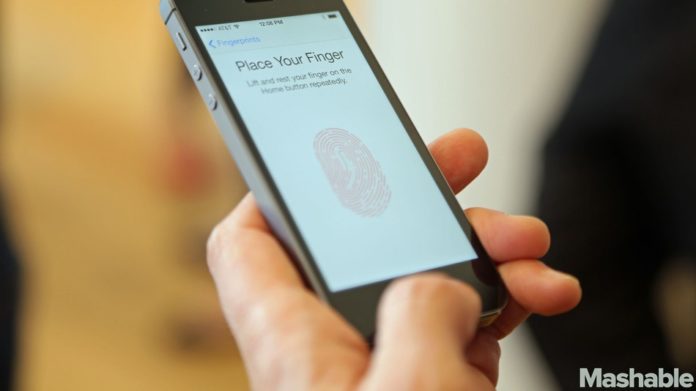How biometrics could help smartphones predict the next Ebola outbreak

AUSTIN, Texas — Sensors like those used for Apple’s Touch ID, and the heart rate monitor in Samsung’s newer Galaxy devices, have helped change the way users interact with their smartphones, but experts say sensors combined with big data stands to change a lot more — including the entire healthcare industry.
During a biometrics-themed panel at SXSW, Dr. Leslie Saxon, who founded the Center for Body Computing at USC in Los Angeles, discussed her vision of a future in which smartphones will enable the collection of biometric data that will be used for everything from individual medical records to predicting the next major disease outbreak.
“Imagine if you’re checking your phone 150 times a day — which is the average — what if sometimes you’re getting a facial scan that measures your blood pressure, your heart rate, something else and you’re collecting this massive biometric cloud in the sky while you’re just opening stuff,” Saxon said during a packed panel at SXSW.
“With this type of density of data just from the invisible — just from opening devices — you could potentially be transforming healthcare. The crazy part of that is you could scale that really globally.”
Part of that scale is analyzing all that data to find larger trends and insights before researchers would otherwise be able to spot them. This could potentially help scientists and medical researchers spot serious outbreaks — like the recent ebola outbreak that began in west Africa — earlier.
“I imagine this day where, as much as everyone walking around here is immersed in their alternative digital reality that healthcare is a a part of that,” Saxon said. If we have enough of this biometric data then we can predict ebola and things like that very early on.“
Of course, smartphone technology (and the medical industry) isn’t quite there yet, but Saxon, and her fellow panelists said, that future is not nearly as far away as it may sound. App developers have already found ways — often with the help of wearables — to measure users’ pulse, heart rate and even which of your friends stress you out.
Instead, the bigger caveat to all this, Saxon says, is privacy. She believes there needs to be more regulation and oversight around biometric data privacy, which she said is currently in a “wild west” state that is too easily hacked or mismanaged. Her idea? A kind of “U.N for biometrics and security,” a global body that oversees individuals’ right to privacy and works to ensure the data is handled properly and not influenced by outside interests.
“There’s nothing more intimately private than healthcare so we have to put the very highest safeguards around this data,” She said. “It not only has to be beyond what we have now, but much farther beyond.”
Have something to add to this story? Share it in the comments.
